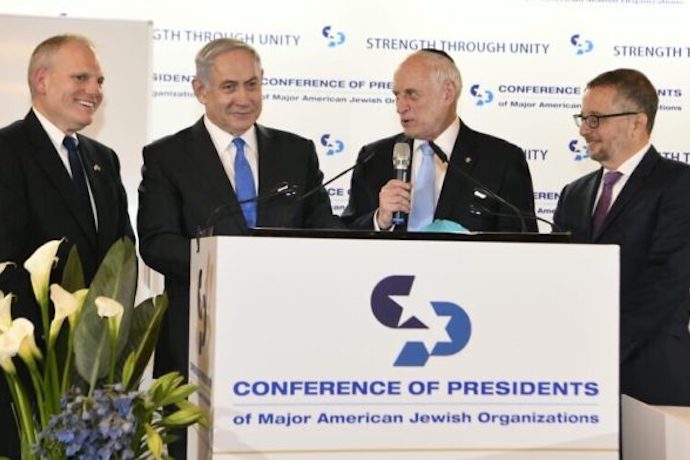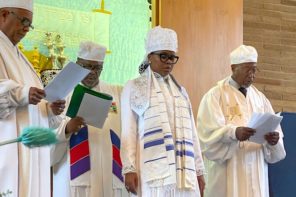When our colleagues in Jewish Studies courageously publicized the systematic and decades-long sexual harassment and assault perpetrated by sociologist Steven M. Cohen, among the many difficult conversations it precipitated was one about the values underlying his work on what’s known as “Jewish continuity.” Currently, there’s an effort afoot to readmit Cohen into the academic community, which has justifiably solicited condemnation. The academic research on Jewish continuity insists that Jews face a demographic crisis solvable only through increased reproduction. This is to say is, “Jews” marrying “Jews” and raising “Jewish” children. In response, scholars in Jewish Studies have articulated how this discourse relies on and sustains patriarchal and sexist ideologies. We contend that the overeagerness to rehabilitate Cohen and to salvage the project of Jewish continuity is symptomatic of a broader problem within academic Jewish Studies: its monopolization by the rationale and rubrics of neoliberalism, a system in which the free market and its values are revered above all else.
Neoliberalism is complicit in what we see as the patriarchy, heteronormativity, and racism of the Jewish continuity discourse. We also maintain that the outsized investment in research on Jewish continuity epitomizes the neoliberal prioritization of relevance, marketability, and trendiness. As scholars of Jewish Studies—Jewish philosophy and Rabbinics, respectively—we seek to interrogate both the discourse on Jewish continuity and the disproportionate investment in contemporary American concerns that it exemplifies. This prioritization of the contemporary impacts fields within Jewish Studies, influencing not merely funding but also academic and methodological priorities. We suspect that our work as scholars situated outside the modern-contemporary subfields provides us with a different perspective.
The language and, we argue, the conceptual categories in which the discourse on Jewish continuity traffics, even by its critics, remain beholden to essentializing cisheteronormative and binary-gendered frameworks. The discourse continues to reduce and reproduce an uninterrogated reliance on reproductive models that privilege monogamy, marriage, and the state, alongside marginalizing conceptions of “community,” “leadership,” and binary sexgendered divisions of labor, especially reproductive labor. That is to say, “community” values of a certain kind are already encoded in the discourse on Jewish continuity and these “community” values have a great deal more in common with the much maligned “family values” than even the most conservative continuity proponents would care to admit.
The feminist critique of Jewish continuity has compellingly identified the sexism and patriarchy that subsidize the enterprise. But there’s still more to dismantle. We invite scrutiny of the ideologies that structure the particular forms of sexgender, sexuality, kinship, racialization, economic production, ability, and identity upon which this discourse is constructed. Furthermore, we contend that when scholars of Jewish continuity (advocates or critics) position certain individuals or minorities as additive, alternative, or non-normative, in “inclusion and diversity” based models, this leaves the categories and concepts of the Jewish continuity project intact.
We propose that historical and critical theory have much to offer American Jewish sociology and American Jewish Studies. As outsiders in adjacent subfields, we suspect that such theorizing might push the critique beyond what are still constraining paradigms. For instance, it might enable an assessment of the ways in which the discourse on Jewish continuity duplicates specific and often debilitating forms of marriage and monogamy that are promoted and secured by the neoliberal state, through laws and norms that regulate taxation, inheritance, health access, and education, to name but a few. This would allow us to deconstruct the biopolitics that reinforce dominant sexgender systems and normative bodies that value certain lives and devalue others.
A case in point is the ways in which racism is smuggled into the project of Jewish continuity.
Racism is discernible in the construction of an idea of “Jewishness” as inherently distinct from and preferable to other groups or ethno-religious affiliations. It’s more explicitly visible in Jewish continuity discourses that focus less on Jewish cultural-ritual practices and meaning-making but more on embodied individuals and collectivized populations. Rather than studying how people live Jewish lives, the emphasis is on the numbers of bodies that “count” as Jewish. More disturbing still are the legacies of scientific racism evident in the language of “intermarriage,” “in-marriage,” and “out-marriage.”
We suspect that such constructs may unintentionally amplify intra-Jewish prejudice and discrimination towards non-Ashkenazi and non-white Jews. This shapes an academic field in which people of certain racialized ethno-religiosity—i.e. white Jews—tend to have more access, authority, and power to shape knowledge production. At times, so-called community “leaders” and “stakeholders” who are not academics but who are professionalized and reified as “Jews” (or “leaders” and philanthropists) hold more of a voice in Jewish Studies than potentially non-Jewish or racial minority academic voices.
The preference of the Jewish continuity enterprise to structure its assessment of Jewishness on conventional forms of “marriage” and “family,” remains tethered to an idealized patriarchal heteronuclear family that stigmatizes and erases increasingly more common forms of kinship and networks of care. Such forms and networks include people who aren’t “coupled” or are “decoupled,” as well as those who are non-monogamous and those who aren’t parents. We maintain that the theoretical and historical resources for these critiques may be recruited from ancient, medieval, and modern Jewish texts, cultures, and thought. Our own scholarship in these spheres draws from models developed in critical theory, queer theory, trans theory, feminist science studies, new materialisms, and, of course, critiques of power and ideology that trace through Spinoza, Marx, and Freud.
What strikes us about the discussions surrounding Cohen’s work is the continued presumption of its significance to Jewish Studies as a whole. While we don’t dispute the outsize influence of his research within the subfield of Jewish sociology and American Judaism—and, regrettably, across the landscape of Jewish communal institutions and priorities—we do not think that this is extrapolable to the entire field of Jewish Studies. Indeed, there seem to be other factors contributing to the perceived significance of his work.
The promotion of his research exemplifies the ways in which Jewish Studies continues to commend and render authority to scholars who conform to norms that remain predominantly white, ableist, cisheteromale. Beyond this, we surmise that the misappraisal of significance is symptomatic of a certain overemphasis and overvaluing—even canonization—of specific forms of research and scholarship: that which is focused on the contemporary, the present, and its near antecedents.
While such scholarship is as legitimate an academic pursuit as any other, Cohen’s status within Jewish Studies is a consequence of the fact that he studies contemporary American Judaism and that the Jewish community is, understandably, invested in itself and its “future.” This blurring of boundaries between the academy and the Jewish community is alarming. To be sure, Jewish Studies, like any field, but also more than most fields, relies on philanthropic largesse. When scholarship is so dependent upon sponsorship, support, and subsidy from external sources within the mainstream power apparatus of the Jewish community, it’s difficult to sustain distance. It’s even harder to pressure the ideologies being studied, let alone to avoid unwittingly perpetuating them. This is an obvious and uncontroversial observation.
However, we also hazard a related point: that a certain neoliberal ideology pervades Jewish Studies. What we mean by this is that the predominant rationale is one that measures value and rewards scholarship that satisfies the metrics of relevance, applicability, and productivity, and accordingly traffics in methodologies that are empirically-oriented, outcome-driven, and data-rich—what would, in the Christian context, be referred to as research designed to “get butts in the pews,” so to speak. These ostensibly neutral rubrics are ideological and it’s unsurprising that they promote scholarship that duplicates and reconfirms hegemonic norms.
It is difficult not to sense that the field of Jewish Studies continues to promote and reward scholarship that’s focused on the present or the immediate past. While we have no quarrels with these courses of inquiry, we have reservations about an academic culture that seems disproportionately invested in the study of the contemporary moment. This is not only because too often this unquestioningly reproduces the prejudices, biases, and constraints of the moment, but also because it has repercussions for adjacent subfields.
In the context of the ongoing corporatization of higher education, resources are limited and funding is a proxy for value. As such, there is an expectation that scholarship of all subfields, periods, and genres, justify itself in accord with neoliberal criteria. Consider, for example, that both of us have been pressed to defend the relevance and applicability of our respective work. We’re aware that the intention is not to indict our research per se, but to question the thinking and inquiry that we practice. It’s always difficult for us to answer this query because, like many of our colleagues, our projects are invested in disrupting precisely such knee jerk thinking, including the very presumption of “relevance” that underwrites the question.
To be sure, we resist a false binary that separates the academy from that which is situated beyond it; we appreciate that scholarship engaged with the “world” isn’t inherently problematic and that it is, in fact, valuable and necessary. Our concern surfaces when “external” agendas, especially of the neoliberal variety, subsidize research by reproducing not only its biases but also a commodity approach to knowledge that measures worth and relevance based on capitalist categories. As we routinely reassure our students, the close readings, historical analyses, and theoretical practices in which we engage are pursuits unto themselves. They also activate our ways of seeing and being, affording us the disorientation of difference and that of thinking otherwise. All scholarship is an attempt to understand our shared and unshared worlds. That is a justification in and of itself.
The harms of sexual harassment and racism demand a reckoning across the fields of Jewish Studies. Attempts to readmit predators and their scholarship come at the cost of continued trauma to those they harass and assault. This is not unique to the subfield of Jewish sociology. As people who are not cismen, we’ve each experienced multiple instances of sexual and gender-based harassment of both the routinized and more malicious varieties. We understand that this is pervasive across the academy and beyond.
Both of us, to different degrees, are also the beneficiaries of white supremacy; in Jewish Studies this confers on us a certain unearned authority. Our hope is that these current discussions are seized as opportunities for an assessment of Jewish Studies and the relationship between its social and epistemic practices. This entails a comprehensive critique of the power, hierarchy, and privilege that structure the field, and simultaneously condition the theories, methods, and inquiries that it prizes.
We invite our colleagues across the field of Jewish Studies (and beyond) to interrogate the ideologies and priorities that both condition and constrain our collective research. This is an opportunity not only to dismantle the oppressiveness of racist and cisheteronormative thinking and practices. It’s also our moment to overcome the constraints of neoliberal rubrics and the fetish of the contemporary, and to reimagine a field invigorated by casting wide intellectual alliances, untamed by disciplinary boundaries, and liberated from its fear of difference.





